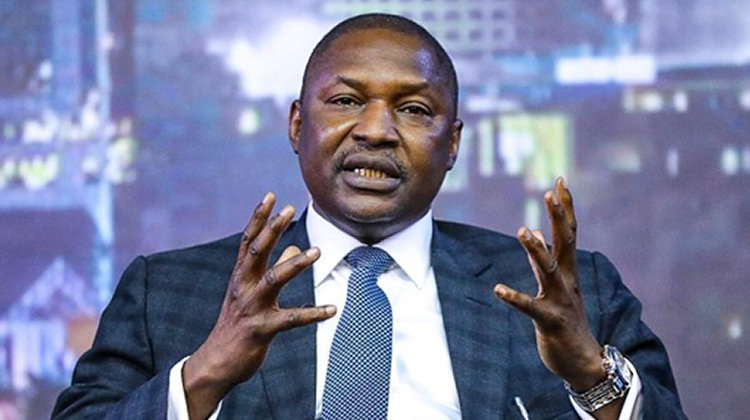The political landscape of Kebbi State has become embroiled in controversy following accusations and counter-accusations between former Attorney General of the Federation, Abubakar Malami, and the state’s lawmakers in the National Assembly. The crux of the dispute stems from Malami’s petition to security agencies, alleging a plot to destabilize the state, which he attributed to Governor Nasir Idris and other All Progressives Congress (APC) stakeholders. Malami claimed they were involved in importing thugs and illegal arms into the North-West state. This triggered a sharp rebuke from Kebbi lawmakers, who, led by former Governor Adamu Aliero, accused Malami himself of orchestrating the unrest by importing political thugs, leading to violent clashes.
Malami, in his petition, painted a picture of a state teetering on the brink of chaos, claiming the alleged importation of thugs and weaponry posed a significant threat to peace and security. He insisted that his concerns were purely security-driven and aimed at preventing escalation of violence. He portrayed himself as a whistleblower, bringing to light a dangerous situation that required urgent attention. The former attorney general sought the intervention of national security agencies to investigate his claims thoroughly and take appropriate actions to avert potential unrest. He emphasized the seriousness of the situation, suggesting it could jeopardize the stability of the entire region.
The Kebbi lawmakers, however, vehemently rejected Malami’s allegations, dismissing them as baseless and politically motivated. They accused him of attempting to undermine the state government and create an atmosphere of fear and instability. Their counter-narrative depicted Malami as the instigator, claiming he had transported thugs into the state during a condolence visit, which subsequently led to an attack on the APC state secretariat. They challenged Malami to substantiate his claims with evidence, arguing his petition lacked credibility and was a deliberate attempt to smear the reputation of the state and its leadership.
Further escalating the war of words, the Kebbi lawmakers demanded Malami’s arrest and prosecution, arguing his actions constituted a threat to public order. They presented a starkly different picture of the state, emphasizing its long-standing reputation for peace and stability. They portrayed Malami’s actions as a blatant attempt to disrupt this peace for political gain. The lawmakers pledged their unwavering support to security agencies working to maintain order and urged them not to be swayed by what they termed “false narratives.”
Malami, in response to the calls for his arrest, reiterated his stance that the lawmakers were politicizing a critical security issue. He condemned their focus on his alleged actions, diverting attention, he claimed, from the real threat posed by banditry and the increasing loss of lives and property in the state. He argued that their priority should be addressing the security challenges facing the people of Kebbi rather than engaging in political point-scoring. Malami portrayed himself as a concerned citizen drawing attention to a serious security threat, while accusing the lawmakers of prioritizing political maneuvering over the safety and well-being of their constituents.
The Kebbi State House of Assembly Speaker, Muhammad Usman, further amplified the counter-arguments against Malami, echoing the sentiments of the lawmakers. He labeled Malami’s petition as a calculated attempt to incite fear and tarnish the reputation of the state and its government. Usman asserted that Kebbi State enjoyed a well-established reputation for peace, and Malami’s accusations were nothing more than a diversionary tactic to distract the administration from its developmental agenda. This effectively frames the narrative as a clash between Malami’s alleged disruptive actions and the state government’s efforts to maintain peace and progress. The ongoing dispute highlights the deep political divisions within Kebbi State and raises concerns about the potential for further escalation of tensions.


